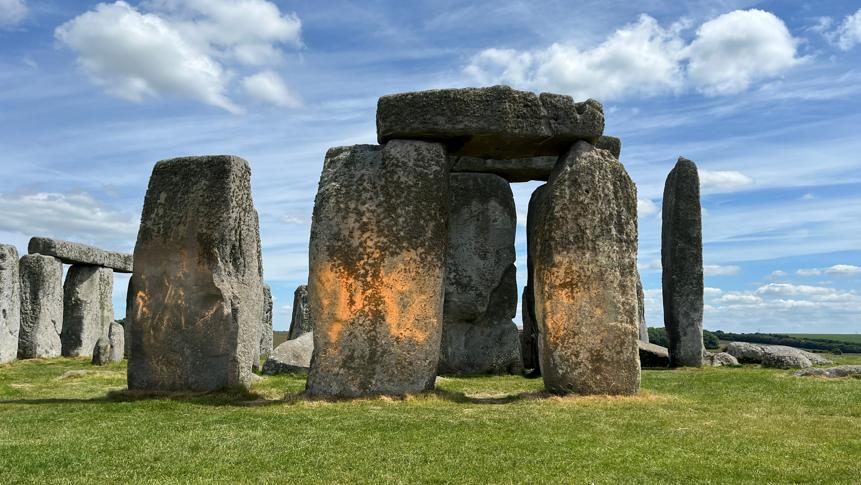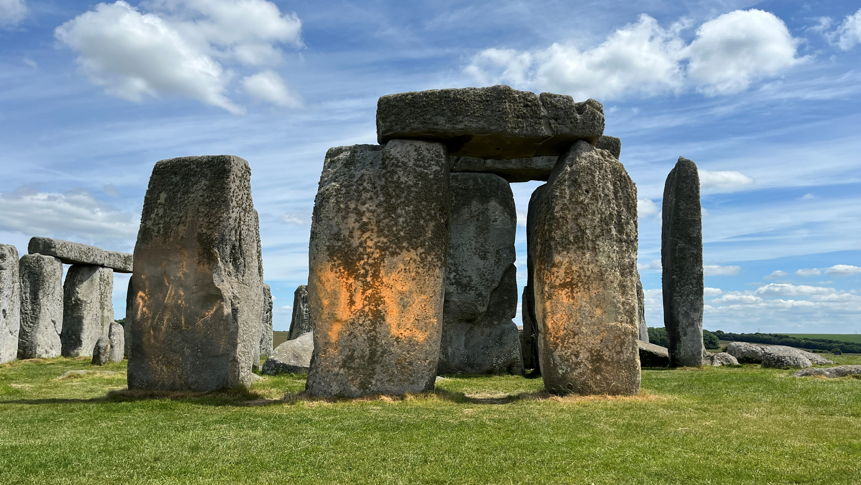Oil protester 'drove petrol car to Stonehenge'

Three people deny damaging the ancient monument
- Published
A Just Stop Oil supporter accused of damaging Stonehenge told a jury he borrowed his grandmother's petrol car to drive to the monument.
Luke Watson, 36, is standing trial alongside Rajan Naidu, 74, and Niamh Lynch, 22, who are accused of using fire extinguishers filled with cornflour, talc and an orange dye to spray the stones on 19 June last year.
Mr Watson told Salisbury Crown Court he had no intention of permanently damaging the monument or causing serious distress to bystanders.
Mr Watson, of The Street in Manuden, Essex, Mr Naidu, of Gosford Street, Birmingham, and Ms Lynch, of Norfolk Road, Bedford, all deny charges of damaging an ancient protected monument and causing a public nuisance.
The court was told the trio targeted Stonehenge as part of an ongoing fossil fuel protest by the Just Stop Oil group.
The jury heard Mr Watson borrowed the car from his grandmother to collect the colour blasters and drive his co-defendants to Salisbury on the morning of the incident.
The court previously heard Mr Watson had driven from London to the Oxfordshire area in a Ford Fiesta the day before the summer solstice when about 15,000 people were due to gather and celebrate.
"I don't think going to Stonehenge at solstice is about having a particular tinge on the stones," Mr Watson said.
"It's more about going to a site that people have been going to for a long time, throughout history.
"I think you can go there and have a very good experience with an orange stone, blue stone, green stone."
'DNA link'
Mr Watson went on to explain that he became involved in activism while working on an organic farm, first joining the Extinction Rebellion group in 2019 before getting involved with Just Stop Oil.
When Mr Naidu and Ms Lynch were arrested wearing white Just Stop Oil T-shirts, forensic examination of one of the colour blasters provided a DNA link to Mr Watson, the court was told.
Simon Jones, prosecuting, told the court there were concerns that if the substance got wet it could become a paste and that there was a "pressing need" to clean the stones ahead of the solstice event.
The cost of cleaning the stones was £620, he added.
The trial continues.
Get in touch
Tell us which stories we should cover in Wiltshire
Follow BBC Wiltshire on Facebook, external, X, external and Instagram, external. Send your story ideas to us on email or via WhatsApp on 0800 313 4630.
Related topics
- Published23 October

- Published20 October
